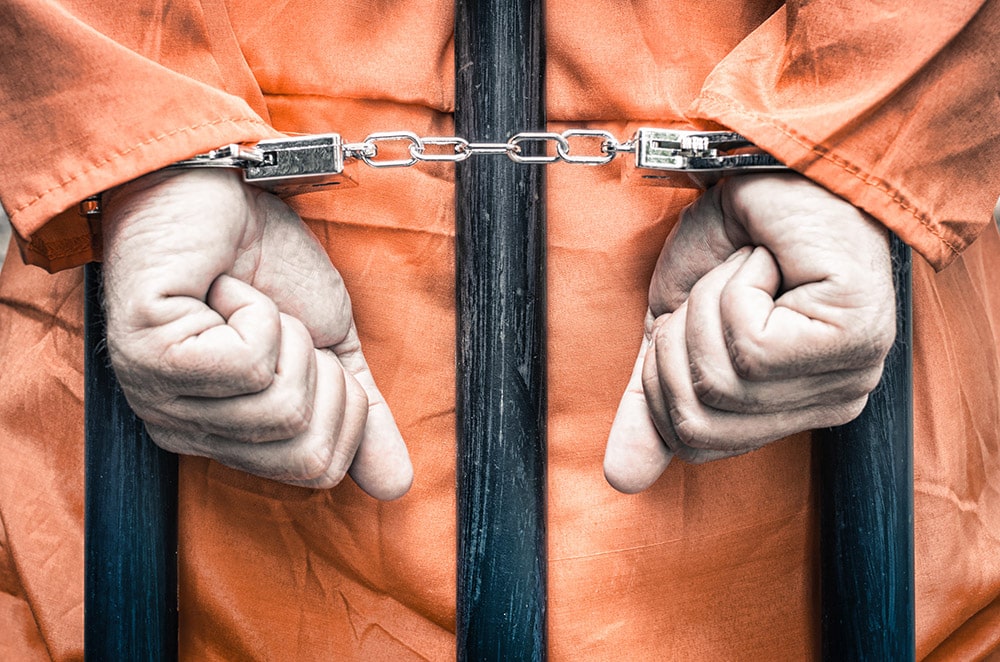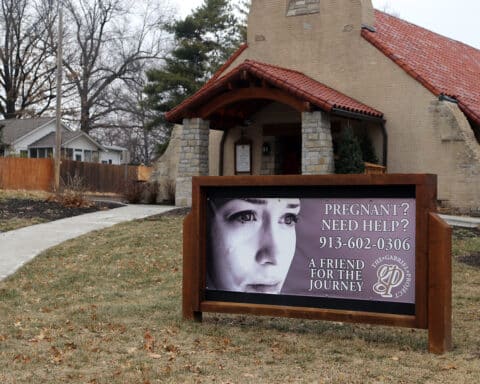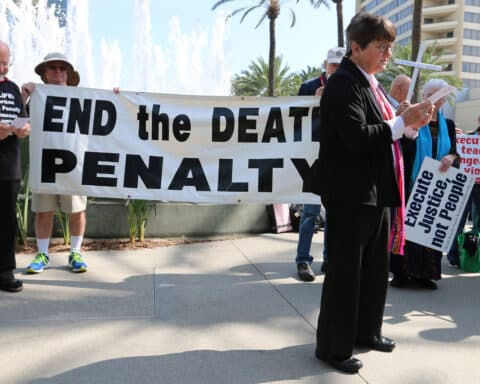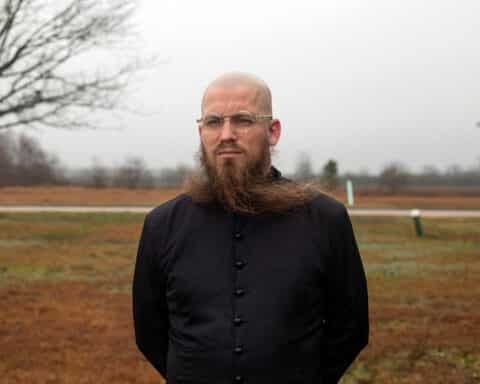“We embrace this hope-filled new beginning.”
These were the words Virginia Bishops Michael F. Burbidge of Arlington and Bishop Barry C. Knestout of Richmond wrote in a joint statement on March 24, the day that Virginia Gov. Ralph Northam abolished the state’s death penalty.
On that day, the governor signed into law SB 1165/HB 2263, which made Virginia the first Southern state, and the 23rd state in the country, to eliminate capital punishment. “We supported this historic legislation as it progressed through the General Assembly because all human life is sacred,” the Virginia bishops went on to say. And we heartily agree.
For Catholics who profess a deep commitment to the sanctity of human life from conception until natural death, the abolition of the death penalty in a state that has ended more than 1,300 lives over the course of its 400-year history is no small victory. It is also an encouraging sign for the future that, God willing, will lead to the repeal of the death penalty in the remaining 27 states that currently retain it.
The passing of this decidedly pro-life piece of legislation is especially significant as the federal government, since lifting the 17-year moratorium against federal executions last year, executed 13 people between July 2020 and January 2021. As Pope St. John Paul II wrote in his 1995 encyclical Evangelium Vitae (“The Gospel of Life”): “[Punishment] ought not go to the extreme of executing the offender except in cases of absolute necessity: in other words, when it would not be possible otherwise to defend society. Today however, as a result of steady improvements in the organization of the penal system, such cases are very rare, if not practically non-existent” (No. 56).
Pope Francis made a change to the Catechism of the Catholic Church on this topic in 2018, building on John Paul II’s thinking, calling the death penalty “inadmissable” and adding that the Church “works with determination for its abolition worldwide” (No. 2267).
Such an effort on the part of the Church is in no way meant to demean or belittle the families and loved ones of the victims of the heinous crimes committed by those on death row. These individuals have gone through a tragedy and heartache that no one should have to experience. And justice demands that the perpetrators of those crimes be punished. But Pope Francis is beckoning us to embrace mercy over revenge, a calling particularly worthy of reflection as we approach Divine Mercy Sunday.
In his new encyclical Fratelli Tutti (“Brothers All”), Pope Francis integrates the death penalty into his thinking about our responsibility to care for one another. He writes: “Let us keep in mind that ‘not even a murderer loses his personal dignity, and God himself pledges to guarantee this.’ The firm rejection of the death penalty shows to what extent it is possible to recognize the inalienable dignity of every human being and to accept that he or she has a place in this universe. If I do not deny that dignity to the worst of criminals, I will not deny it to anyone. I will give everyone the possibility of sharing this planet with me, despite all our differences” (No. 269).
So we, too, embrace Virginia’s decision to abolish the death penalty as a hope-filled new beginning, and we pray that the new legislation will serve as a beacon of light and hope for those states that have yet to follow suit.
This victory for the culture of life also serves as a reminder of what can happen through determined policy advocacy — in this case, in part, by the Virginia Catholic Conference, the public policy arm of the Diocese of Richmond and Diocese of Arlington. This success should serve as a movement of encouragement for all within the pro-life movement to continue to raise their voices in support of the vulnerable, the forgotten and the marginalized. It’s a reminder that change for the better is possible, and that when we speak out, we can make an impact.
It’s also a reminder of the work yet to be done: the 27 states that continue to hold executions; the million unborn children similarly executed every year; the increasing number of states that are advocating for “dignity” in death by legalizing assisted suicide. Building up a culture of life is a mission without an end. But this time in Virginia, we’re grateful for a win.
Our Sunday Visitor Editorial Board: Gretchen R. Crowe, Scott P. Richert, Scott Warden, York Young





